With their Paris 2024 Paralympic Games competitions behind them, Team Samsung Galaxy athletes Kadeena Cox (Para cycling, Great Britain) and Desirée Vila (Para athletics, Spain) joined Samsung for Chat with Team Samsung Galaxy — an exclusive conversation in which they shared highlights from the Paralympic Games and their hopes for the future.
Samsung Newsroom joined fans and media at Olympic™ rendezvous @ Samsung | Champs-Elysees 125 to hear from Cox, gold medalist in the Para cycling mixed 750-meter team sprint C1-5, and Vila, who competed in the women’s long jump T63.
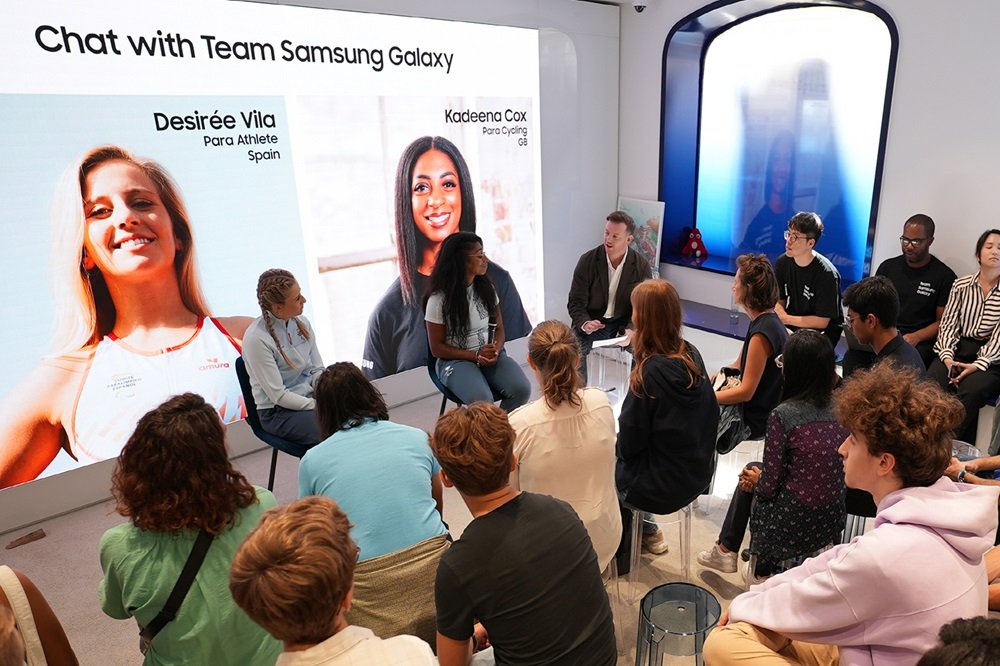
▲ Chat with Team Samsung Galaxy at Olympic™ rendezvous @ Samsung | Champs-Elysees 125
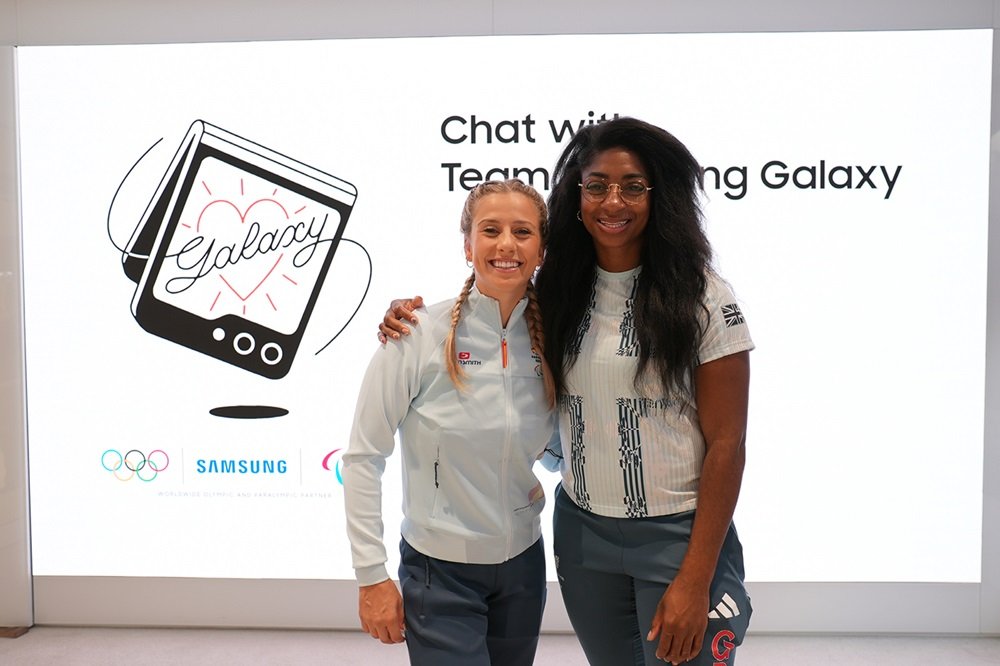
▲ (From left) Desirée Vila of Team Spain and Kadeena Cox of Team Great Britain
Q. Kadeena, you’ve competed across multiple events during your Paralympic career. What motivated you to be your best in all these different sports?
Cox: I’ve always loved sports — my mom says I ran before I could walk. My mindset changed when I went from being an able-bodied athlete to being a Para athlete. When you’re disabled, people almost limit you and see what you can’t do as opposed to what you can do. For me, the last 10 years have been about pushing those boundaries and trying to encourage people to feel like they are more than their disability. You have to try and live your best life because we only get one.
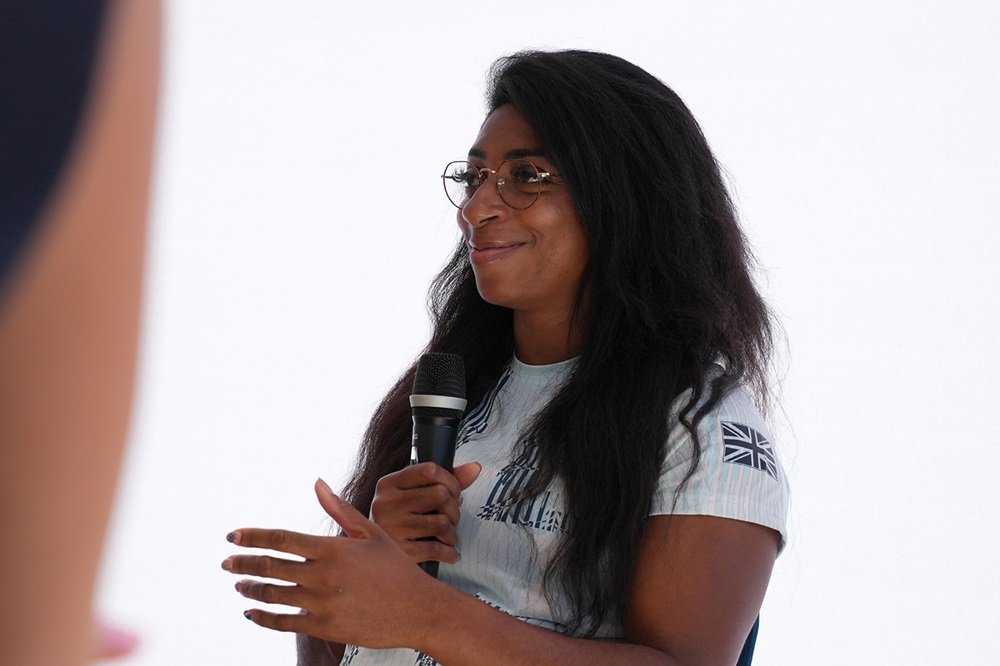
▲ Team Samsung Galaxy’s Kadeena Cox discusses her ascent to become an accomplished Paralympian.
Q. Desirée, you were a professional acrobatic gymnast prior to becoming a successful Para athlete. What was your journey like from competitive acrobatic gymnastics to the long jump?
Vila: I loved doing acrobatics as a child, so I started gymnastics and eventually competed internationally. When I broke my leg doing an acrobatic stunt on the trampoline, my biggest fear was, “Am I going to be able to practice again?” Rio 2016 was at a time when my physical limitations were occupying my thoughts. However, seeing people like me in the opening ceremony helped me understand that I could overcome what I was going through if I have an open mind. Being an athlete before the amputation helped me with my mindset and allowed me to focus on what I wanted to achieve.
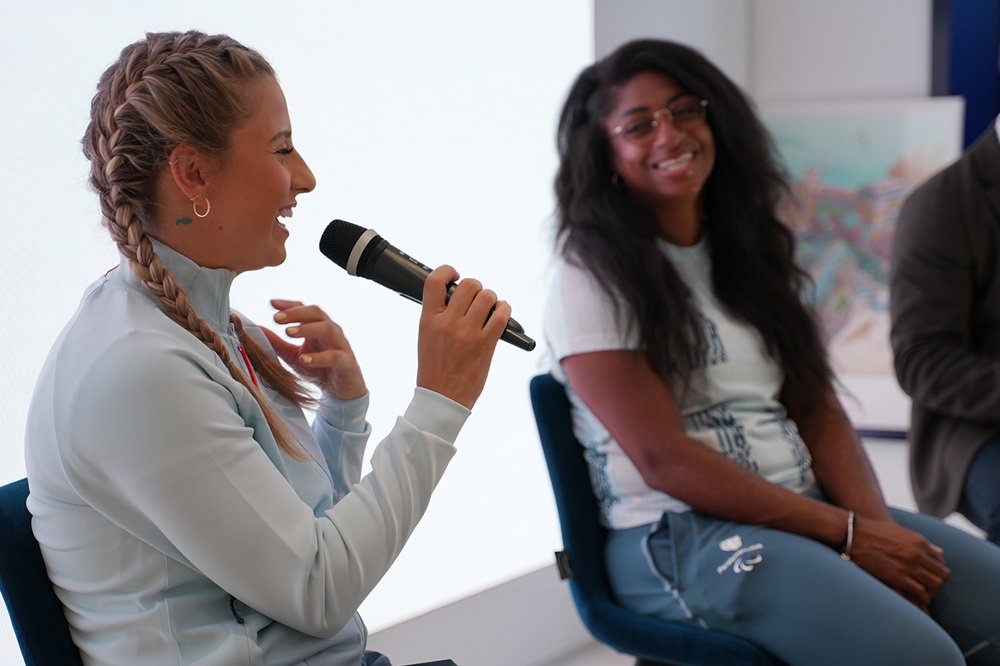
▲ Team Samsung Galaxy’s Desirée Vila recalls her journey from acrobatic gymnastics to Para athletics.
Q. Kadeena, you experienced a significant setback at these Paralympic Games before becoming a Paralympic gold medalist for the fifth time! How do you find the strength and resilience to reach your goals during challenging times?
Cox: After my stroke at 23, I thought I would recover and move on with my life — but soon I was diagnosed with multiple sclerosis (MS) which is a lifelong condition. As an athlete, I was determined to get back into sports. I already had that mindset of goal setting and seeing my progression. When people started messaging me saying that what I was doing was encouraging them, my goal shifted to empowering others. I had high expectations to meet ahead of Paris 2024, but there was a moment when I wasn’t superhuman. I was able to bounce back and win gold in my next race by being open about my struggles. I hope that encourages others to overcome challenges in their own lives.
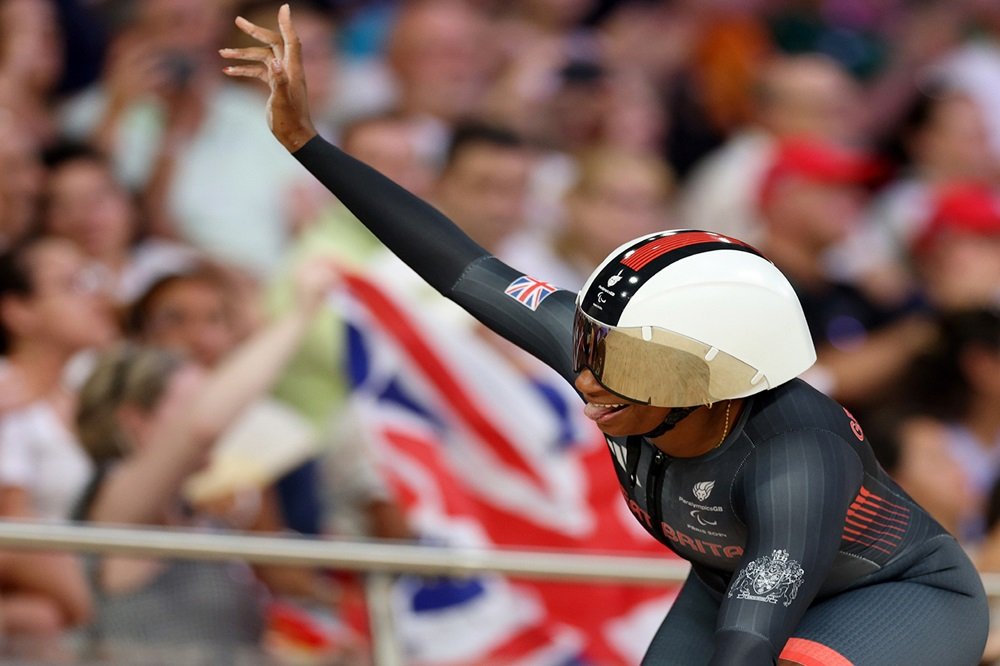
▲ Kadeena Cox of Team Great Britain celebrates after winning gold in the Para cycling mixed 750-meter team sprint C1-5. (Photo by Getty Images)
Q. Desirée, you’ve written a book that is very open about your challenges. How do you think being open has set you up for success both on and off the track?
Vila: Suddenly losing a leg and having to accept a new body is hard. I remember being in the hospital and thinking, “Will I ever be able to walk again?” or “Will I ever have a boyfriend?” or “Will my friends still want to hang out with me?” Fear is relatable, and a lot of people feel this way when they experience problems throughout their lives. To cope, I started writing to help me process everything I’ve been through and how I’m overcoming my situation. Sharing the bad things shows that we’re not superhumans. Staying transparent has helped me understand that I’m more than my physical appearance.
Q. Kadeena, the Paris 2024 Paralympic Games promised to be a ‘Games Wide Open.’ What does Samsung’s Paris 2024 theme of ‘Open always wins’ mean to you?
Cox: People see athletes and think we’re on a pedestal when we actually deal with normal, real-life problems like everyone else. Being open about our own challenges helps others face in theirs and feel less alone. Also, it is important to be open to change. Life was literally throwing me curveballs, but I stayed open to every obstacle. Now, I’m one of the best cyclists in the world! Change isn’t necessarily always good — but, sometimes, it can be amazing when you’re open to it.
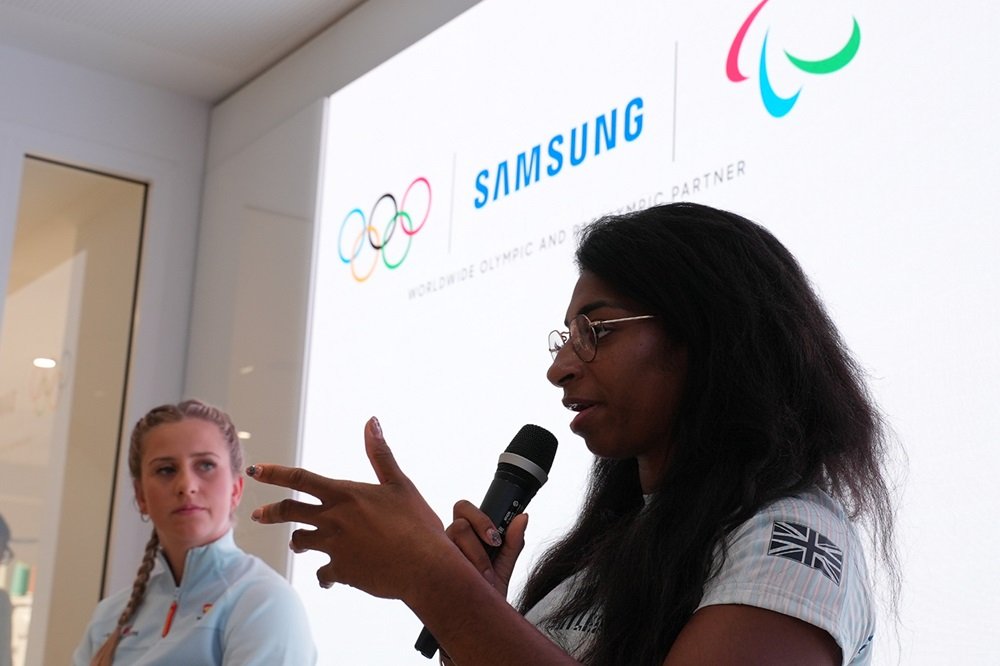
▲ Kadeena Cox discusses her open-mindedness.
Q. Whether you’re training or relaxing, you both probably rely on technology. What are some ways you use technology in your day-to-day life?
Cox: As a sprinter, how you get out of the gate is critical to setting up the rest of your race. With the latest Galaxy mobile technology, I can watch my starts over and over — whether I’m looking at different angles or using Instant Slow-mo to really hone in on where I’m putting my arms and legs. The videos are extremely helpful when reviewing with my coach. In addition, technology has been important in helping me share my experience with MS and drive awareness.
Vila: Using technology to share candid moments with others on social media is important as an athlete because people only see moments like when you get to the Paralympic Games or when you win a medal. They don’t see the daily struggle and the work that was needed to get there. As an athlete, it’s important to show that there’s not always going to be good results — and that’s okay!
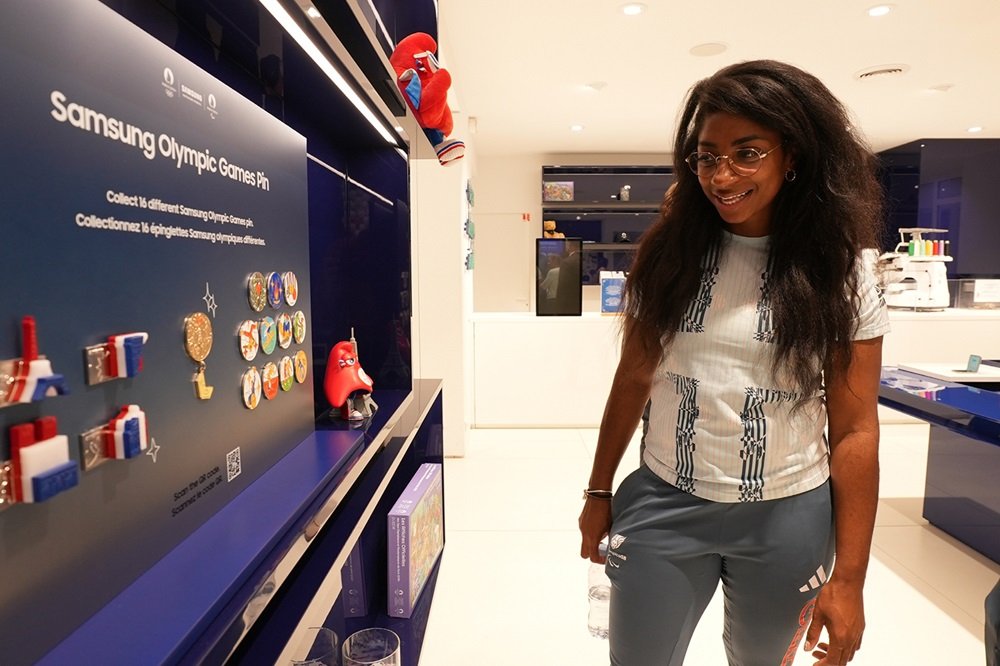
▲ Kadeena Cox checks out the Samsung Olympic Games Pin collection.
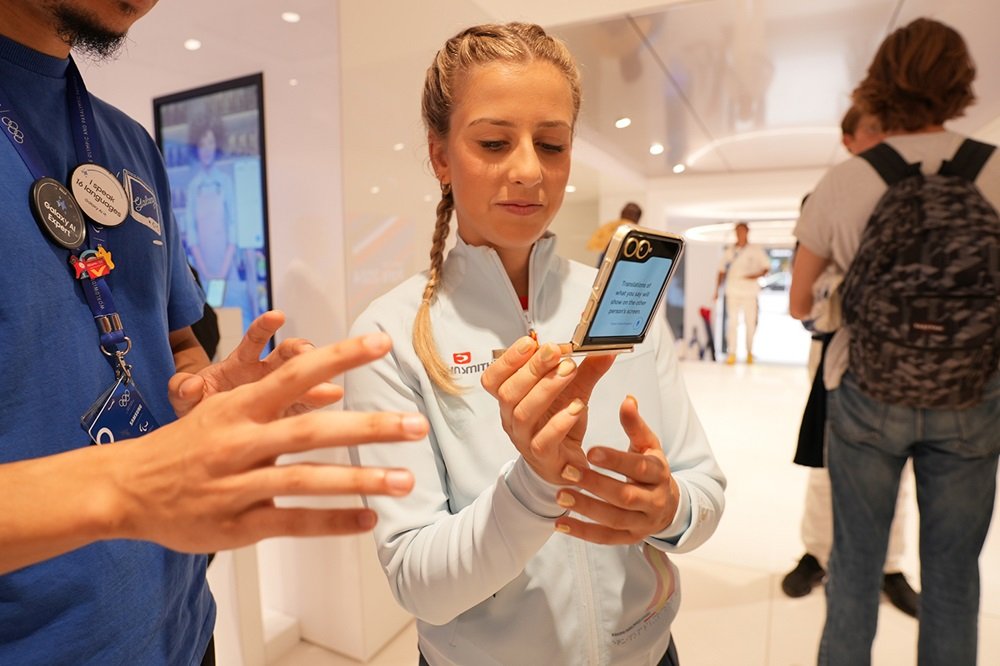
▲ Desirée Vila uses Interpreter on the Galaxy Z Flip6 Olympic Edition.

▲ (From left) Desirée Vila and Kadeena Cox pose for a selfie.
This article was first published at Source link . You can check them out for other stuffs
